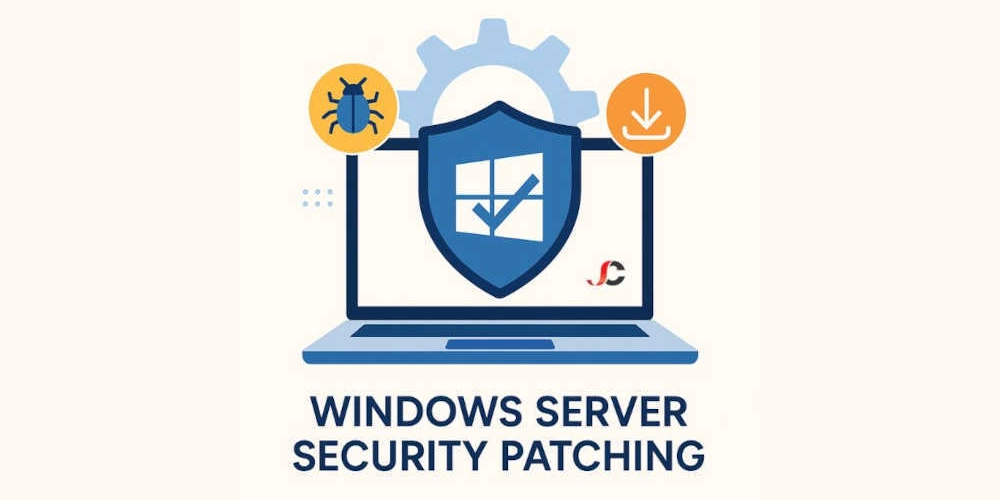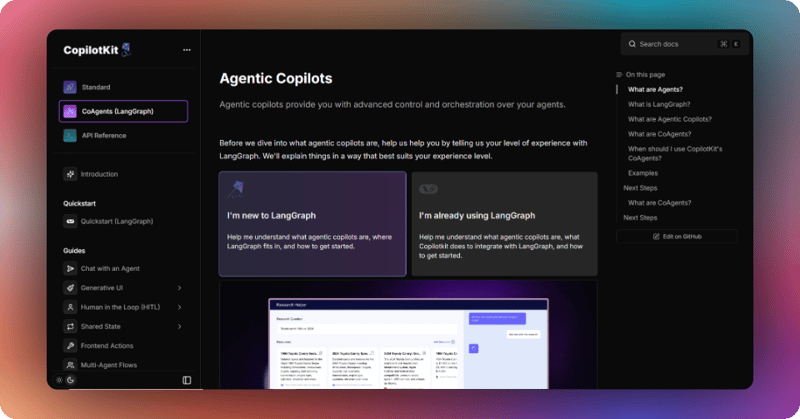Windows Server Security Patching in London: Essential for Protecting Your Business from Cyber Threats
In London’s fast-paced business landscape, small and medium-sized businesses (SMBs) face increasing cyber risks. To defend against these dangers, regularly updating Windows Server security patching is essential. Regular patching helps safeguard critical business data, ensures system integrity, and supports business continuity. Why is Windows Server Security Patching Crucial? Safeguarding Network Security • Prevents Exploits: Patches close vulnerabilities that hackers could exploit. • Strengthens Defences: Regular updates enhance your server's defences against emerging cyber threats. Ensuring Business Continuity • Minimises Downtime: Proactively addressing security vulnerabilities avoids unplanned downtime. • Protects Data: Up-to-date servers are less susceptible to data breaches, ensuring the safety of critical business data. Windows Server security patching is not just a technical requirement—it is a strategic approach to maintaining a secure and resilient IT environment for London businesses. Risks of Neglecting Patch Management Failure to apply security patches regularly exposes businesses to significant risks: • Security Breaches: Unpatched servers are vulnerable to attacks, which can result in data theft or corruption. • Ransomware Threats: Cybercriminals frequently exploit known vulnerabilities to deploy ransomware, which locks critical business data. • Compliance Violations: Failing to follow regulations, such as GDPR, can result in financial penalties and legal issues, ultimately harming your company's reputation. Recent Incidents in London Several London businesses have experienced data breaches due to unpatched servers, underscoring the importance of regular patching to protect sensitive information and maintain client trust. The Benefits of Regular Windows Server Security Patching Implementing regular patching not only boosts cybersecurity but also improves system performance: • Improved Efficiency: Regular updates can optimise server performance, reducing the risk of system crashes. • Enhanced Cybersecurity: Each patch addresses vulnerabilities, strengthening overall network security. Creating an Effective Patch Management Strategy For London SMBs, establishing a proactive patch management strategy is essential: • Assess Your Environment: Catalogue all servers and systems, prioritising those critical to your business operations. • Define Policies: Set up a regular patching schedule to minimise disruption. • Automate Patching: Use tools like WSUS or third-party solutions to automate updates and streamline the process. • Test Patches: Test updates in a controlled environment before full deployment to ensure no disruptions occur. • Monitor and Report: Regularly review patch deployment to ensure effectiveness and compliance. Regulatory Compliance Adhering to UK regulations, such as GDPR and NIS, is essential for avoiding penalties and maintaining business continuity. Regular patching helps meet these regulatory requirements and protects your business from evolving cyber threats. Conclusion In London, Windows Server security patching extends beyond simply applying updates—it's crucial to safeguard your business from cyber threats, ensure smooth operations, and meet regulatory requirements. SMBs in London must adopt a proactive patch management strategy to protect their data, maintain client trust, and stay ahead of emerging threats. FAQs What is Windows Server Patch Management? Windows Server patch management aims to consistently update the operating system and software, addressing security risks, improving system performance, and enhancing overall security. This involves identifying available patches, testing them to ensure they will not disrupt your system, applying the updates, and monitoring their effectiveness. For businesses in London, it is crucial as it helps protect servers from cyber threats and ensures that systems run smoothly. Why is regular patching important? Regular patching is essential for several reasons: • Security: Each patch addresses known vulnerabilities, closing security gaps that cybercriminals could exploit. • Performance: Patches often improve system efficiency by fixing bugs and optimising performance, which can help reduce downtime. • Cyber Defence: As cyber threats evolve, patching ensures your system’s defences are up to date, reducing the risk of attacks. • Business Continuity: Maintaining secure and functioning servers ensures that business operations continue uninterrupted, protecting sensitive data from breaches. What are the consequences of failing to manage patches regularly? Neglecting to apply patches can expose your business to several risks: • Security Breaches: Unpatched systems are vulnerable to attacks, which could result in unauthorised access and data theft. • Ransomware: Cybercriminals often exploit known vulnerabilities to deploy ransomware, which locks business data until a ransom is paid. • Non-Compliance: Failing to patch systems regularly can resul

In London’s fast-paced business landscape, small and medium-sized businesses (SMBs) face increasing cyber risks. To defend against these dangers, regularly updating Windows Server security patching is essential. Regular patching helps safeguard critical business data, ensures system integrity, and supports business continuity.
Why is Windows Server Security Patching Crucial?
Safeguarding Network Security
• Prevents Exploits: Patches close vulnerabilities that hackers could exploit.
• Strengthens Defences: Regular updates enhance your server's defences against emerging cyber threats.
Ensuring Business Continuity
• Minimises Downtime: Proactively addressing security vulnerabilities avoids unplanned downtime.
• Protects Data: Up-to-date servers are less susceptible to data breaches, ensuring the safety of critical business data.
Windows Server security patching is not just a technical requirement—it is a strategic approach to maintaining a secure and resilient IT environment for London businesses.
Risks of Neglecting Patch Management
Failure to apply security patches regularly exposes businesses to significant risks:
• Security Breaches: Unpatched servers are vulnerable to attacks, which can result in data theft or corruption.
• Ransomware Threats: Cybercriminals frequently exploit known vulnerabilities to deploy ransomware, which locks critical business data.
• Compliance Violations: Failing to follow regulations, such as GDPR, can result in financial penalties and legal issues, ultimately harming your company's reputation.
Recent Incidents in London
Several London businesses have experienced data breaches due to unpatched servers, underscoring the importance of regular patching to protect sensitive information and maintain client trust.
The Benefits of Regular Windows Server Security Patching
Implementing regular patching not only boosts cybersecurity but also improves system performance:
• Improved Efficiency: Regular updates can optimise server performance, reducing the risk of system crashes.
• Enhanced Cybersecurity: Each patch addresses vulnerabilities, strengthening overall network security.
Creating an Effective Patch Management Strategy
For London SMBs, establishing a proactive patch management strategy is essential:
• Assess Your Environment: Catalogue all servers and systems, prioritising those critical to your business operations.
• Define Policies: Set up a regular patching schedule to minimise disruption.
• Automate Patching: Use tools like WSUS or third-party solutions to automate updates and streamline the process.
• Test Patches: Test updates in a controlled environment before full deployment to ensure no disruptions occur.
• Monitor and Report: Regularly review patch deployment to ensure effectiveness and compliance.
Regulatory Compliance
Adhering to UK regulations, such as GDPR and NIS, is essential for avoiding penalties and maintaining business continuity. Regular patching helps meet these regulatory requirements and protects your business from evolving cyber threats.
Conclusion
In London, Windows Server security patching extends beyond simply applying updates—it's crucial to safeguard your business from cyber threats, ensure smooth operations, and meet regulatory requirements. SMBs in London must adopt a proactive patch management strategy to protect their data, maintain client trust, and stay ahead of emerging threats.
FAQs
What is Windows Server Patch Management?
Windows Server patch management aims to consistently update the operating system and software, addressing security risks, improving system performance, and enhancing overall security. This involves identifying available patches, testing them to ensure they will not disrupt your system, applying the updates, and monitoring their effectiveness. For businesses in London, it is crucial as it helps protect servers from cyber threats and ensures that systems run smoothly.
Why is regular patching important?
Regular patching is essential for several reasons:
• Security: Each patch addresses known vulnerabilities, closing security gaps that cybercriminals could exploit.
• Performance: Patches often improve system efficiency by fixing bugs and optimising performance, which can help reduce downtime.
• Cyber Defence: As cyber threats evolve, patching ensures your system’s defences are up to date, reducing the risk of attacks.
• Business Continuity: Maintaining secure and functioning servers ensures that business operations continue uninterrupted, protecting sensitive data from breaches.
What are the consequences of failing to manage patches regularly?
Neglecting to apply patches can expose your business to several risks:
• Security Breaches: Unpatched systems are vulnerable to attacks, which could result in unauthorised access and data theft.
• Ransomware: Cybercriminals often exploit known vulnerabilities to deploy ransomware, which locks business data until a ransom is paid.
• Non-Compliance: Failing to patch systems regularly can result in non-compliance with regulations such as GDPR, which may lead to fines.
• Data Loss: Vulnerable systems are more susceptible to crashes and failures, which can lead to the loss or corruption of critical data.
How can I automate patch management?
Automating patch management can save time and ensure that updates are applied promptly and efficiently. Windows Server Update Services (WSUS) and System Centre Configuration Manager (SCCM) are practical tools for automating patch management. These tools automatically detect, download, and install patches, reducing human error risk. Automation also ensures that critical patches are applied promptly, enhancing security without disrupting business operations.
How can I ensure compliance with UK regulations?
Regular patching helps businesses comply with UK regulations like GDPR and NIS. Under these regulations, companies must implement measures to safeguard personal and sensitive data, and patching plays a vital role in this process. With updated patches, businesses enhance system security, reducing the risk of data breaches while ensuring they meet data protection requirements. Failure to patch regularly could result in regulatory penalties and reputational damage.




























![[Webinar] AI Is Already Inside Your SaaS Stack — Learn How to Prevent the Next Silent Breach](https://blogger.googleusercontent.com/img/b/R29vZ2xl/AVvXsEiOWn65wd33dg2uO99NrtKbpYLfcepwOLidQDMls0HXKlA91k6HURluRA4WXgJRAZldEe1VReMQZyyYt1PgnoAn5JPpILsWlXIzmrBSs_TBoyPwO7hZrWouBg2-O3mdeoeSGY-l9_bsZB7vbpKjTSvG93zNytjxgTaMPqo9iq9Z5pGa05CJOs9uXpwHFT4/s1600/ai-cyber.jpg?#)











































































































































![[The AI Show Episode 144]: ChatGPT’s New Memory, Shopify CEO’s Leaked “AI First” Memo, Google Cloud Next Releases, o3 and o4-mini Coming Soon & Llama 4’s Rocky Launch](https://www.marketingaiinstitute.com/hubfs/ep%20144%20cover.png)





























































































































![[FREE EBOOKS] Machine Learning Hero, AI-Assisted Programming for Web and Machine Learning & Four More Best Selling Titles](https://www.javacodegeeks.com/wp-content/uploads/2012/12/jcg-logo.jpg)








































































![Rogue Company Elite tier list of best characters [April 2025]](https://media.pocketgamer.com/artwork/na-33136-1657102075/rogue-company-ios-android-tier-cover.jpg?#)








































































_Andreas_Prott_Alamy.jpg?width=1280&auto=webp&quality=80&disable=upscale#)





























































































![What’s new in Android’s April 2025 Google System Updates [U: 4/18]](https://i0.wp.com/9to5google.com/wp-content/uploads/sites/4/2025/01/google-play-services-3.jpg?resize=1200%2C628&quality=82&strip=all&ssl=1)










![Apple Watch Series 10 Back On Sale for $299! [Lowest Price Ever]](https://www.iclarified.com/images/news/96657/96657/96657-640.jpg)
![EU Postpones Apple App Store Fines Amid Tariff Negotiations [Report]](https://www.iclarified.com/images/news/97068/97068/97068-640.jpg)
![Apple Slips to Fifth in China's Smartphone Market with 9% Decline [Report]](https://www.iclarified.com/images/news/97065/97065/97065-640.jpg)


































































































































